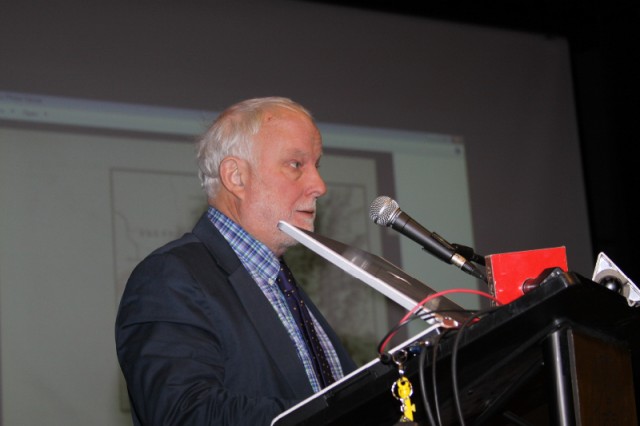Interview with James Pettifer, a scholar and author of a number of books on Kosova and the Balkans
By Ruben Avxhiu
In a comment to Illyria’s website, you expressed recently your suspicions about the special tribunal that is being debated in Kosova. What is wrong with it from your perspective?
I thought the comment on the issue in Illyria’s website has generally been very good. The issue is basically about attempts by some sections in the international community who have never been keen on the independence of Kosova to undermine that independence. The key to doing this is to undermine the legal system of a country and its practical political democracy. The Kosova Parliament took a decision in 2013 that the time had come for the EULEX rule of law mission to be ended and Kosova to be responsible for its own legal system. The attempt to prolong the EULEX mandate through the establishment of the proposed Tribunal is a direct attack on Kosova’s legal sovereignty.
Why do you think there seem to be so much pressure in this time about it from governments which in other aspects support and help the new Republic of Kosova?
Why is this happening now? I think there is a very simple answer to this – the IC is frightened at the successes of Russian policy in the Ukraine, and you only have to look sometimes at the Belgrade newspapers to see how closely all this is being watched in Serbia.
Russia has in my opinion growing economic influence in Serbia, and the IC is afraid that Belgrade will move at some future point over annexation of the part of Kosova north of the Ibar River.
The offer to try to attack the ex-KLA leadership, so many of whom not only performed heroically in the wartime period but also have demonstrated their commitment to peace and reconciliation in post-conflict Kosova is part and parcel of this process, and is an attempt to give a sop to Belgrade over Kosova policy to keep the Ashton-brokered ‘peace process’ alive. This peace process has involved endless one-sided concessions by Prishtina and has little to recommend it.
What should the Kosovar politicians do?
This is not the way forward- the Marty allegations on which this movement seems to have been based have been extensively discussed and analysed for over three years and unless something new in terms of hard evidence is produced, there is no basis for any Kosova cooperation whatsoever with such an externally-imposed and politically inspired Tribunal. Kosova Assembly members should reject it this week and also say that if it formed there will be no cooperation with it.
A motion should also be passed reaffirming last year’s decision on the end of EULEX within an agreed and rapid timeframe.
There is also the issue, which is a disgrace, of outsiders who are living in the past when the LDK had a political monopoly in some countries like parts of Germany making ill-informed interventions in internal Kosova politics.
There is an argument that if Kosova is to say no to this tribunal then it would seem as if the Kosovars lack the will to investigate crimes, which occurred during the war. Or that people in government and in the parliament have something to hide on what has been investigated. Does this reasoning make sense?
I don’t accept this, no. Kosova Albanians have a long record of positive cooperation with the ICTY at The Hague and other international judicial bodies. Foreign police investigators have worked in Kosova for many years with the knowledge of the Prishtina government
There is no merit in defensive neurotic responses to international opinion that has never supported the struggle for a free and democratic Kosova. The government and all Kosova leaders should stand on their good record.
One of your recent books offers an important research on the historic roots of the movements that preceded and in a way paved the road for the KLA. (The Kosova Liberation Army: Underground War to Balkan Insurgency, 1948-2001). In your view, will courts and tribunals affect the legacy of KLA and in a wider context the liberation war of Kosovars?
In any war there are violent acts and crimes, and if war crimes were committed by anybody, on either side, they should be exposed and subject to judicial process. But the laws already exist in both Kosova and Serbia encouraging this and some progress has been made. A controversial externally exposed ill-thought out Tribunal with undefined powers will only reopen old wounds and exacerbates genuine reconciliation. And why is Kosova being singled out? Is such a Tribunal going to be imposed also in Serbia? The American Ambassador needs to respond to public concern over this question.
